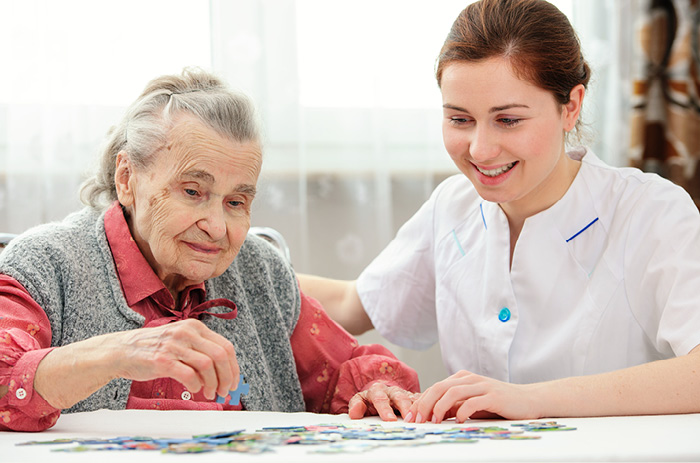All Categories
Featured
Table of Contents
- – Alzheimer's Care Solana Beach, CA
- – Heaven Heights
- – Alzheimer Care Solana Beach, CA
- – Alzheimer's Care At Home Solana Beach, CA
- – Alzheimer's Care At Home Solana Beach, CA
- – Care For Alzheimer's Solana Beach, CA
- – Senior Assisted Living Solana Beach, CA
- – Care For Alzheimer's Solana Beach, CA
- – Home Care For Alzheimers Solana Beach, CA
- – Heaven Heights
Alzheimer's Care Solana Beach, CA
You may be able to get help from family members, neighbors, volunteers or agencies. Some aid may be readily available through the Home Care program in your location at no or low cost. Contact your local Alzheimer Culture for even more info on solutions offered in your area. Providers that can help include:: They give individual care in your home, aiding with consuming, dressing and showering as well as light house jobs.
: Nursing services give experienced experts in the home.: These programs use home-delivered dishes to help provide healthy lunches and dinners.: These give a pleasant site visitor (paid or volunteer) to hang out with the person doing an activity such as walking.: These give social communications for the individual along with break for the caretaker.

Services for the elderly and their caregivers differ in various districts, areas and regions. You can find out what solutions are available in your community from a number of sources: Your regional Alzheimer Culture Your family practitioner, health clinic or social worker The public health division in your location Neighborhood companies Your friends, family members, neighbors, specifically if they have been caregivers.
Alzheimer Care Solana Beach, CA
A loved one with mental deterioration will certainly require assistance in the home as the condition becomes worse. You can help by trying to understand exactly how the person with mental deterioration perceives their world. Provide the person a possibility to discuss any type of challenges and participate in their own daily treatment. Start by speaking with your liked one's health care service provider.
Household photo albums can be useful. Attempt to maintain a normal sleep and eating timetable. Maintain lights on during the night. Usage tips, notes, lists of routine jobs, or instructions for daily tasks. Stay with a straightforward task schedule. Speak about current occasions. Taking routine strolls with a caregiver can assist boost communication abilities and avoid roaming.
Alzheimer's Care At Home Solana Beach, CA
People with dementia must have their eyes and ears examined. Individuals with dementia should also have routine driving examinations.
State regulations vary on the ability of an individual with dementia to continue to drive. People with mental deterioration usually forget to consume and consume, and can come to be dried as a result.
Alzheimer's Care At Home Solana Beach, CA
If they wander, their caregiver can contact the cops and the national Safe Return office, where details about them is kept and shared nationwide. Eventually, people with mental deterioration might need 24-hour monitoring and support to provide a secure atmosphere, control hostile or perturbed behavior, and meet their demands. LONG-LASTING CAREA person with mental deterioration may require tracking and aid in your home or in an institution.
They consist of: Grownup protective servicesCommunity resourcesLocal or state federal government divisions of agingVisiting registered nurses or aidesVolunteer services In some neighborhoods, dementia-related assistance teams may be offered. Family therapy can help household participants deal with home treatment. Development regulations, power of lawyer, and various other lawsuits might make it simpler to select look after the individual with mental deterioration.

There are support system that can provide details and sources for people with Alzheimer condition and their caregivers.
Care For Alzheimer's Solana Beach, CA
These inquiries and feelings are typical. With a very early medical diagnosis, you and the person with mental deterioration now have the opportunity to choose regarding the future with each other, including lawful, financial, and long-term care preparation. The individual coping with dementia can take advantage of offered treatments or participation in professional tests and you both can take advantage of neighborhood resources and assistance services.
The duty of a treatment partner is not limited to partners, partners or close member of the family. Treatment companions might include "households of selection" such as close friends, next-door neighbors or long-distance relatives. If you are giving support as a second or remote care companion, it might be hard to establish the specific level of support needed without direct observation.
Senior Assisted Living Solana Beach, CA
One of the best obstacles care companions face is not knowing just how much assistance to give or when to provide it since the person with early-stage dementia is primarily independent with clothing, showering, strolling and may still drive, volunteer or job. One of the most uphill struggles may involve handling a day-to-day schedule or house budget.
Every relationship is various, however locating balance between connection and independence might enhance self-confidence for both of you. Download and install, print and maintain the list convenient to stop hazardous scenarios and assist make best use of the person living with mental deterioration's self-reliance for as lengthy as possible. To assist you identify when and how to provide one of the most proper support to an individual living in the beginning of dementia consider these pointers made use of by various other care companions: Exists a prompt security threat for the person with dementia to do this task alone? If there is no instant danger of injury or damage, offer support and continue to provide guidance as necessary.
As an example, if you know that grocery shopping will certainly be discouraging for the individual with mental deterioration, ask for their engagement to describe a regular menu and organize a grocery store list. Think that the person with mental deterioration is qualified of finishing the job. If you notice disappointment, attempt to identify the cause of the frustration before interfering.
Care For Alzheimer's Solana Beach, CA
Ask the person with dementia what they require or the frustrations they may be experiencing. Speak about it, then make a plan.: Locate activities to do together and maintain the discussion going about assumptions for exactly how you will certainly provide support. Sign in on a regular basis by asking the individual with mental deterioration if you are offering a degree helpful that is comfy or sufficient.
While everyone experiences the onset of dementia in a different way, it prevails that an individual in the early-stage might need cues and pointers to assist with memory. As a care partner, it may be essential for you to take the effort to identify how you may be able to help.

Supplying support to a person living with Alzheimer's disease or a related dementia is a recurring and sometimes emotional process. As treatment companion, you might be really feeling bewildered by emotions that range from concern to hope. Alzheimers Caregiver Solana Beach.
Home Care For Alzheimers Solana Beach, CA
Discovering to identify your feelings may aid you progress and assist the individual with dementia live the very best life feasible. I threw away a great deal of important time denying that this could be possible, when I can have been getting assistance to assist me handle the medical diagnosis. Sarah H., Treatment Companion The diagnosis may appear amazing or difficult to approve.
Heaven Heights
Address: 2870 Whiptail Loop Ste 218 Carlsbad, CA 92010-6767Phone: (760) 642-2096
Email: innovativeseniorcare@heavenheights.com
Heaven Heights
It also can delay his or her ability to live a top quality life. If you are experiencing rejection about the diagnosis, your capability to help the person with dementia will certainly be obstructed till you can involve terms with the medical diagnosis yourself. Fears concerning the development of the disease and the difficulties in giving future treatment can be frustrating and can stop you from concentrating on today.
Home Care For Alzheimers Solana Beach, CACare For Dementia Patients Solana Beach, CA
Alzheimer's In Home Caregiver Solana Beach, CA
Schizophrenia Assisted Living Solana Beach, CA
Senior Assisted Living Solana Beach, CA
Alzheimer Care Near Me Solana Beach, CA
Care For Alzheimer's Solana Beach, CA
Alzheimer Care Solana Beach, CA
Senior Assisted Living Solana Beach, CA
Senior Living Assistance Solana Beach, CA
Alzheimer's In Home Caregiver Solana Beach, CA
Alzheimers Caregiver Solana Beach, CA
Senior Assisted Living Solana Beach, CA
Alzheimer Caregiver Solana Beach, CA
Care For Dementia At Home Solana Beach, CA
Alzheimers Care Near Me Solana Beach, CA
Senior Assisted Living Solana Beach, CA
Care For Dementia At Home Solana Beach, CA
In Home Care For Alzheimer's Solana Beach, CA
Alzheimer's In Home Caregiver Solana Beach, CA
Alzheimers Caregiving Solana Beach, CA
Alzheimer's Caregivers Solana Beach, CA
Alzheimer's Care Solana Beach, CA
Alzheimer Care Solana Beach, CA
Alzheimer's Home Care Solana Beach, CA
Schizophrenia Assisted Living Solana Beach, CA
Alzheimer's Care Solana Beach, CA
In Home Care For Alzheimer's Solana Beach, CA
Senior Living Consultants Solana Beach, CA
Alzheimers Caregiver Solana Beach, CA
Alzheimer Care Solana Beach, CA
Alzheimer Care Solana Beach, CA
Senior Assisted Living Solana Beach, CA
Senior Living Consultants Solana Beach, CA
Alzheimer Caregiver Solana Beach, CA
Alzheimer's Care At Home Solana Beach, CA
Alzheimer's Care Solana Beach, CA
Alzheimers Home Care Solana Beach, CA
Schizophrenia Assisted Living Solana Beach, CA
Assisted Living Services Solana Beach, CA
Home Care For Alzheimer's Patients Solana Beach, CA
Senior Assisted Living Solana Beach, CA
Alzheimer Caregiver Solana Beach, CA
Care For Alzheimer's Solana Beach, CA
Services For Seniors Solana Beach, CA
Alzheimers Care Near Me Solana Beach, CA
Alzheimers Caregiving Solana Beach, CA
Home Care For Alzheimers Solana Beach, CA
Alzheimer Home Care Solana Beach, CA
Care For Dementia Patients Solana Beach, CA
Alzheimers Caregivers Solana Beach, CA
Alzheimers Caregiving Solana Beach, CA
Alzheimer's Care Near Me Solana Beach, CA
Near Me Seo Consultant Solana Beach, CA
Finding A Good Seo Service Solana Beach, CA
Heaven Heights
Table of Contents
- – Alzheimer's Care Solana Beach, CA
- – Heaven Heights
- – Alzheimer Care Solana Beach, CA
- – Alzheimer's Care At Home Solana Beach, CA
- – Alzheimer's Care At Home Solana Beach, CA
- – Care For Alzheimer's Solana Beach, CA
- – Senior Assisted Living Solana Beach, CA
- – Care For Alzheimer's Solana Beach, CA
- – Home Care For Alzheimers Solana Beach, CA
- – Heaven Heights
Latest Posts
Alzheimers Home Care Capistrano Beach
Pala Assisted Living Services
Alzheimers Care Near Me Santee
More
Latest Posts
Alzheimers Home Care Capistrano Beach
Pala Assisted Living Services
Alzheimers Care Near Me Santee